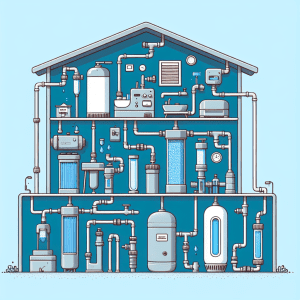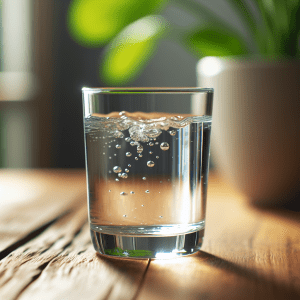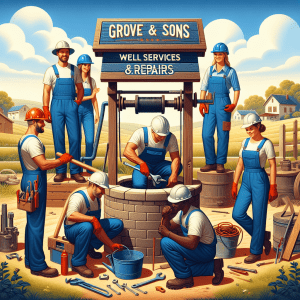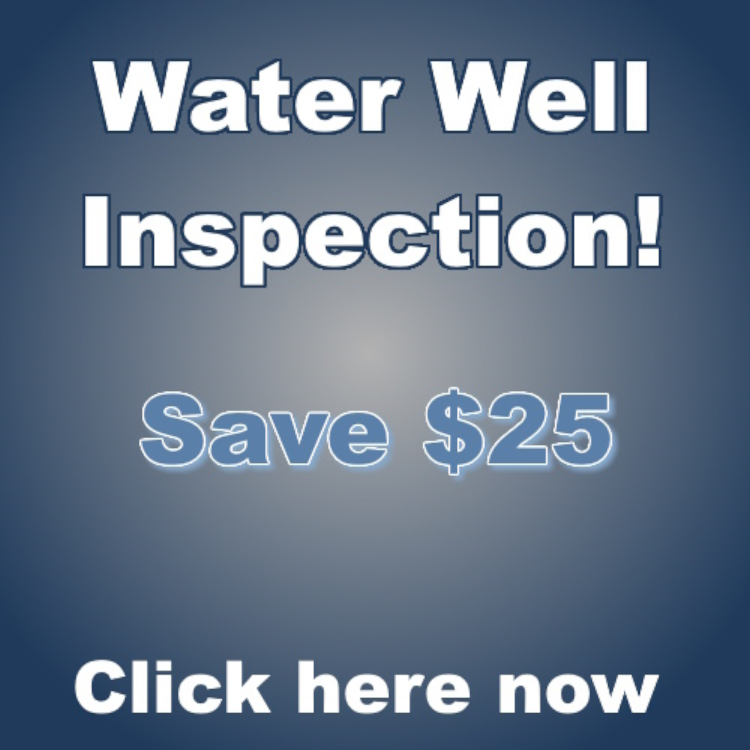 OK, we admit, a home water treatment system isn’t nearly as complicated as this cartoon depicts. Anyway, in our last article we discussed how a home water treatment system can significantly enhance water quality by removing impurities, contaminants, and unpleasant tastes or odors from tap water.
OK, we admit, a home water treatment system isn’t nearly as complicated as this cartoon depicts. Anyway, in our last article we discussed how a home water treatment system can significantly enhance water quality by removing impurities, contaminants, and unpleasant tastes or odors from tap water.
Get ready to transform your home’s water system with the incredible variety of home water treatment solutions available today! Whether you aim to purify the water from a single tap or implement a comprehensive whole-house system, there’s a perfect option tailored for every household and budget. Imagine the exhilarating refreshment of pure, clean water at your fingertips daily. In this article, we’ll dive into a sea of possibilities that enhance your water quality and offer cost-effective options for every family. You’ll discover innovative ideas to elevate your water experience from sleek faucet filters to advanced filtration systems. So, gear up for a wave of inspiration and find the best water treatment solution that turns the ordinary into extraordinary right in your home!
Here are a few things to consider before you choose the right water treatment system for you:
- Assessing Your Water Quality
 Knowing what’s in your water is the first step. Contaminants such as lead, nitrates, or bacteria should be detected using a comprehensive water test. While home testing kits are easy to come by, having a professional provide an analysis will guarantee more accurate results.
Knowing what’s in your water is the first step. Contaminants such as lead, nitrates, or bacteria should be detected using a comprehensive water test. While home testing kits are easy to come by, having a professional provide an analysis will guarantee more accurate results.
Whether you have a chlorine taste, cloudy water, or hard water, a different solution is right for you. For example, eliminating high nitrate levels may require reverse osmosis, whereas removing chlorine smells can be achieved with activated carbon filters.
Working with a local water quality specialist can help you get system-specific advice, particularly when addressing more complicated issues.
- Identifying Your Household Needs
 The size and lifestyle of your family play a significant role in what system you should choose. Consider how much water you use. Larger families or anyone who uses a lot of water may require a higher-capacity whole-house system.
The size and lifestyle of your family play a significant role in what system you should choose. Consider how much water you use. Larger families or anyone who uses a lot of water may require a higher-capacity whole-house system.
For drinking water, a point-of-use filter installed under the sink may be enough. However, if hard water damages your appliances, investing in a water softener is a necessity.
According to your water test results, focus on features that will solve your main concerns, such as lead removal or parasite filtration.
- Comparing System Features and Costs
| System Type | Key Features | Cost Range | Benefits |
| Reverse Osmosis (POU) | Removes lead, copper, sodium | $200–$600 | Effective for chemical contaminants |
| Whole-House (POE) | Treats all incoming water | $1,000–$5,000 | Ideal for hard water or sediment |
| Carbon Filters (POU) | Reduces chlorine, improves taste | $50–$200 | Affordable and easy to maintain |
Long-term costs are crucial when considering a whole house water filtration system. Pay attention to filter replacement and energy consumption. NSF certifications ensure trusted contaminant reduction, so seek specific certifications like NSF/ANSI 53 for health-related contaminants.
- Evaluating Maintenance Requirements
Maintenance is important for usability and costs. Some filters need frequent filter changes, like carbon filters, which need to be replaced every 3-6 months.
Reverse osmosis systems have a longer lifespan, but significantly higher maintenance expenses. If you lack self-DIY know-how, you may want to opt for a lower-maintenance alternative or a pro to do it for you.
- Considering Installation Options
DIY installation is possible for less complex systems, such as faucet-mounted filters, providing additional savings.
With the right professional help, it’s guaranteed that the more complex systems—including whole-house units—will be installed properly. This avoids performance problems and maximizes system lifespan.
Installation costs must be factored into your budget, and they will vary depending on the type of system you choose.

Grove & Sons Well Services & Repairs Can Help!!
Key Considerations for Installation
Installing a whole-house water filtration system isn’t as simple as purchasing the right equipment. It requires a holistic approach to ensure that advanced water systems work safely and efficiently to improve water quality throughout your home.
- Impact on Water Pressure
Some types of filtration systems can decrease water pressure, particularly if they’re not properly sized for your home’s needs. Reverse osmosis systems are notorious for wasting 3 to 5 gallons of water to produce only 1 gallon of treated water. This large consumption can affect flow rates in residential applications where multiple faucets and showers may be running simultaneously.
Regardless of system type, it’s critical to ensure a pneumatic system is specified and designed to deliver sufficient pressure for daily operations. In addition to installation, having a pressure gauge can help you monitor performance after installation to ensure the system is operating as it should.
- Compatibility with Private Wells
You must consider additional factors if your home relies on a private well. Private wells may have unique contaminants such as iron, manganese, or bacteria that city water does not have. Testing private healthy water is very important to find these contaminants.
Contact a water quality expert for expert guidance tailored to your well system. They can recommend targeted solutions, such as UV sterilizers for bacteria or iron filters for water high in iron.
- Best Systems for City Water Supply
City water is commonly treated with chemicals such as chlorine and chloramines, which can impact its taste and smell. Whole-house filtration systems are great for removing these contaminants and ensuring clean water flows from every tap.
Activated carbon filters are especially good at this type of filtration. If you have issues with hard water, a water softener is a worthwhile investment. It saves your appliances and protects your water quality.
- DIY Installation vs Hiring a Professional
DIY installation usually saves money, but it’s not the safest option. Consumers can easily install simpler systems such as faucet-mounted filters. Whole-house systems or reverse osmosis systems typically require the skill and knowledge of a skilled professional plumber.
Poor installation can cause leaks or loss of efficiency. Gauge your DIY confidence with the tools, or plan to engage a qualified certified installer, particularly for more complicated systems, to help ensure years of dependable service.
Understanding Replacement Filter Costs
As you plan your home water treatment system, be sure to consider the cost of the replacement filters. This cost is the most important to your bottom line. These costs typically depend on the sort of filter and the intricacy of the system.
Less expensive fridge filters only remove chlorine. By comparison, reverse osmosis (RO) systems are far superior at removing up to 99% of contaminants and over 70 different impurities. RO systems’ cutting-edge capabilities provide superior performance. However, they result in more expensive maintenance, as replacement filters can cost between $40 and $300.
Some filters need replacing as often as once a month, or at most every three months. On the other hand, reverse osmosis membranes tend to last three to five years with proper maintenance.
- Frequency of Filter Replacement
Following an appropriate replacement schedule will help your whole home water treatment system function at its best for the long haul. While pre-filters may need to be replaced every few months, other built-to-last components, such as reverse osmosis (RO) membranes, have a longer life expectancy.
Considerations like the quality of water and how many gallons you use a day may also affect how long a filter lasts. For instance, homes with more challenging water might require more replacements. Ignoring these schedules may result in lower system performance, higher levels of contaminants, and increased capital repair costs.
- Estimating Long-Term Costs
More than just initial costs, consider ongoing upkeep for your whole house water filtration system. While a high-quality RO system might cost $4,800 to $8,000, it can reduce bottled water dependency, leading to better water savings over time.
- Tips for Prolonging Filter Lifespan
Routine cleaning and monitoring of water quality are important to maximize filter life. Using pre-filters helps protect expensive filtration components, while following manufacturers’ guidelines ensures proper replacements.
High-quality systems like Culligan’s, which remove 12 times more contaminants than average pitchers, are most effective when regularly maintained.
Whole House Filtration Advantages
- Cleaner Water from Every Tap
With a whole house water filtration system, you can enjoy treated water at every tap in your home, ensuring confidence in the quality from all sources, whether you’re drinking, cooking, cleaning, or bathing. From washing produce to cooking pasta, the water you use is as clean as the water you drink! This predictability extends to showers and sinks, giving you peace of mind about your daily water usage.
The system also enhances taste and odor, significantly reducing reliance on bottled water. For those relying on private wells, a whole house filter provides an essential layer of protection, removing hazardous pollutants that could otherwise go unnoticed.
Knowing that every tap delivers pristine water makes you feel secure about water quality. This comprehensive water treatment solution ensures that your entire household benefits from healthy water, making it safe for every family member.
Ultimately, having confidence in your water system means you can focus on enjoying life, knowing that your home has advanced water systems designed to meet all your water filtration needs.
- Reducing Scale Build-Up in Pipes
Mineral deposits, known as scale buildup, can create serious plumbing problems. Whole-house filtration systems tackle this problem by softening water and removing hard minerals such as calcium and magnesium.
This prevents pipe buildup, prolonging the life of appliances such as water heaters and dishwashers. Due to diminished scaling, fewer repairs and less maintenance will ultimately save you significant money over time.
It prevents damage to fixtures such as faucets and showerheads, prevents clogs and discoloration, and prolongs the life of these fixtures.
- Supporting Healthier Living Environments
Having the best quality water available for bathing, cooking, and drinking impacts health in a myriad of ways. A whole-house filtration system removes harmful contaminants such as chlorine, which can dry skin and hurt lungs during showering.
Having access to cleaner water encourages a healthy lifestyle and improves the quality of life for all those who live under your roof. This whole-house filtration system is great for laundry, providing softer water that’s easier on clothing while reducing detergent buildup.
Options are customized to fit your needs and address the specific impurities in your water, whether heavy metals, bacteria, or other contaminants. By treating every water source, the system helps create a safer, healthier home environment.
Conclusion
A home water treatment system is an affordable, effective solution to ensure the highest quality water for drinking, cooking, and use in all homes. It minimizes harmful impurities, prolongs the life of appliances, and improves your water’s taste and safety. With home water treatment solutions available for every tap and whole-house solutions, there’s a solution to fit every home and budget. The bottom line is that selecting the right system depends on your water quality needs, budget, and desired level of ongoing maintenance.
Making clean water investments now pays off in better health and home longevity. It’s not simply a convenience factor. It’s about protecting your health and that of your family. Begin to navigate the myriad options out there, and leap to cleaner, safer water starting today. Clean, safe water isn’t just an improvement—it’s an upgrade you’ll enjoy daily.
Frequently Asked Questions
What is a home water treatment system?
A whole house water filtration system is a device or combination of devices that enhances household water quality by filtering out harmful contaminants. It ensures safe, clean water for drinking, cooking, bathing, and other home uses.
What are the benefits of installing a home water treatment system?
It delivers cleaner, healthier water through a whole house water filtration system, removes harmful chemicals, improves taste and odor, and protects appliances from scale buildup.
What types of home water treatment systems are available?
Some of the most common water filtration systems include reverse osmosis, whole house water filters, UV purifiers, and carbon filters. Each targets a different water quality concern, so select what’s right for your water needs.
How do I choose the right water treatment system for my home?
Test your home’s water to identify contaminants and assess your water filtration needs. Next, select a whole house water filtration system that addresses those problems, considering your family size and water flow rate requirements.
What are key considerations during installation?
Ensure your whole house water filtration system is professionally installed to prevent leaks or inefficiencies. Test your home’s plumbing compatibility and maintenance requirements before making an installation purchase for better water quality.
How much do replacement filters cost?
Replacement filter costs for whole-house water filtration systems depend on your system type, but most range between $20 and $200. Consult your system’s manual for typical costs and replacement frequency.
Why consider a whole-house filtration system?
Whole-house water filtration systems filter water at the point of entry, ensuring pristine water quality for all taps and appliances. They are ideal for households facing water problems like hard water or sediment.
Reference:
Signs Your Well Water Could be Contaminated


0 Comments